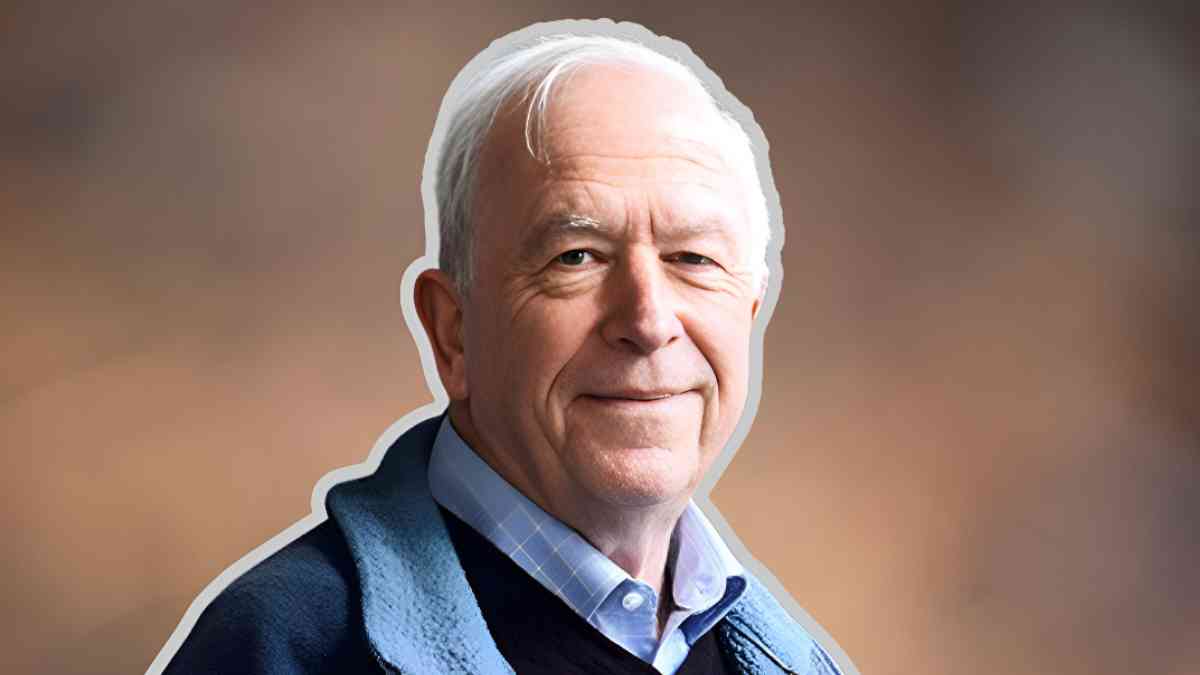Simon Anthony Blackburn: The Philosopher Who Redefined Moral Reasoning

In the world of contemporary philosophy, few names resonate with such clarity and influence as Simon Anthony Blackburn. Known for his articulate approach to ethics, moral reasoning, and philosophical clarity, Blackburn has become a cornerstone of modern British philosophical thought. With a career spanning decades and a legacy deeply rooted in both academic rigour and public engagement, Simon Blackburn represents the epitome of a philosopher committed to bridging the gap between scholarly theory and public discourse.
Early Life and Education
Born on 12 July 1944 in Chipping Sodbury, Gloucestershire, Simon Anthony Blackburn was raised in an intellectually nurturing environment that shaped his lifelong curiosity about moral and philosophical questions. His academic journey began at Clifton College, followed by Trinity College, Cambridge, where he read moral sciences. His dedication to learning and debate soon became evident, earning him a PhD from Churchill College, Cambridge, where his philosophical journey truly took flight.
Academic Career and Appointments
Simon Anthony Blackburn’s academic path has been illustrious. He began teaching at Pembroke College, Oxford in 1969, where he served as a Fellow and Tutor in philosophy for over two decades. In 1990, he returned to Cambridge as Reader in Philosophy, eventually being appointed as Professor of Philosophy in 2001. His contributions were not confined to the UK alone. He also held a visiting professorship at the University of North Carolina at Chapel Hill, showcasing his appeal on both sides of the Atlantic.
During his time in academia, Blackburn took on key roles, including Editor of Mind, one of the most respected philosophical journals, from 1984 to 1990. His tenure at the journal cemented his reputation as both a rigorous scholar and a capable administrator.
Philosophical Contributions
At the heart of Simon Anthony Blackburn’s philosophical output is his defence of quasi-realism, a sophisticated position within metaethics. Quasi-realism seeks to explain how our ethical language and practices can appear to be objective without committing to the existence of independent moral facts. In other words, Blackburn navigates the middle ground between moral realism and expressivism, defending the idea that we can meaningfully speak about moral truths without anchoring them in metaphysical absolutes.
This approach challenges the notion that moral claims must refer to objective facts in the world to be meaningful. Instead, he argues that moral discourse is deeply embedded in our practices and sentiments, and that the seeming objectivity of morality can be preserved without invoking an external realm of moral truths. His book “Essays in Quasi-Realism” (1993) is considered a seminal work in this area.
Public Philosophy and Popular Works
Simon Anthony Blackburn is not merely an academic philosopher confined to ivory towers. He has also engaged with broader audiences through accessible and enlightening works. His 1999 book, “Think: A Compelling Introduction to Philosophy”, was praised for making difficult philosophical ideas digestible to the general reader. In this work, he covers a range of philosophical issues—free will, personal identity, scepticism, and the existence of God—while retaining intellectual depth and rigour.
His follow-up book, “Being Good: A Short Introduction to Ethics”, further showcases his ability to communicate ethical complexity without sacrificing clarity. It presents a concise overview of key moral concepts and challenges readers to engage with their own moral intuitions and beliefs.
Blackburn’s later works, including “Mirror, Mirror: The Uses and Abuses of Self-Love” and “On Truth”, reflect his sustained engagement with contemporary issues—ranging from narcissism and self-image to post-truth politics. These publications demonstrate his enduring relevance in an age where philosophical clarity is desperately needed.
Media Presence and Public Influence
Simon Anthony Blackburn is also a familiar voice on British radio and television. His appearances on programmes such as BBC Radio 4’s “The Moral Maze” and contributions to “Closer to Truth” have brought philosophical discourse to mainstream media. He possesses the rare ability to distil complex topics into lucid and engaging discussions, making philosophy both accessible and relevant.
In addition to his broadcasting efforts, Blackburn has written extensively for publications like The New Statesman and The Times Literary Supplement, often commenting on moral and cultural issues. His sharp wit and eloquence have earned him a place among Britain’s most influential public intellectuals.
Recognition and Honours
Simon Anthony Blackburn’s contributions have been widely recognised. He was elected a Fellow of the British Academy in 2002, a prestigious honour reflecting his impact on philosophical scholarship. In 2008, he was also elected a Foreign Honorary Fellow of the American Academy of Arts and Sciences.
He delivered the Gifford Lectures at the University of Glasgow in 2004, a series entitled “Reason’s Empire”, which explored the foundations and limits of rational inquiry. These lectures represent a high point in his career, cementing his status as a philosopher of international repute.
A Humanist Perspective
Simon Anthony Blackburn is a staunch advocate for humanism, a worldview centred on reason, empathy, and secular ethics. As a patron of Humanists UK, he has contributed to the promotion of secular values in public life. He has also signed public letters supporting free speech, rational discourse, and the importance of dissenting views in modern democracies.
His philosophical outlook, though rooted in analytic traditions, remains deeply humanistic. He champions the view that human beings, though fallible and complex, are capable of moral progress through reason and dialogue. His writing reflects a deep respect for human autonomy and a commitment to democratic ideals.
Legacy and Influence
Simon Anthony Blackburn’s influence extends far beyond the classroom. His books are standard reading for undergraduate philosophy students across the UK and beyond. His contributions to metaethics have reshaped the way philosophers think about moral language and ethical reasoning.
His quasi-realist approach has inspired a generation of thinkers seeking alternatives to rigid moral realism or relativism. In many ways, Blackburn offers a path forward for those who value ethical commitment but remain sceptical of moral absolutes.
Moreover, his impact as a public philosopher cannot be overstated. In a time of increasing polarisation and moral confusion, his calm, reasoned voice offers clarity and direction. He continues to remind us that philosophy is not just about abstract argument but about living thoughtfully and responsibly.
The Man Behind the Philosophy
While Simon Anthony Blackburn’s philosophical work has been widely celebrated, he is also known among colleagues and students for his wit, humility, and generosity. A natural communicator, he thrives on conversation and debate, encouraging others to question, reflect, and explore. He has mentored numerous students who have gone on to become notable philosophers in their own right.
Despite his many accolades, Blackburn has remained grounded. He often emphasises that philosophy is a collective enterprise—one that evolves through dialogue, disagreement, and continuous questioning. His open-mindedness and willingness to engage with different perspectives make him a model philosopher and teacher.
Conclusion
Simon Anthony Blackburn stands as one of the most influential British philosophers of the late 20th and early 21st centuries. Through his innovative ideas, accessible writings, and public engagement, he has significantly enriched both academic philosophy and public understanding.
Whether explaining the intricacies of moral language, dissecting philosophical traditions, or championing humanist values, Blackburn continues to inspire thinkers and readers alike. His work serves as a testament to the enduring relevance of philosophy in everyday life, reminding us that reflection, dialogue, and moral reasoning remain vital to a healthy society.



